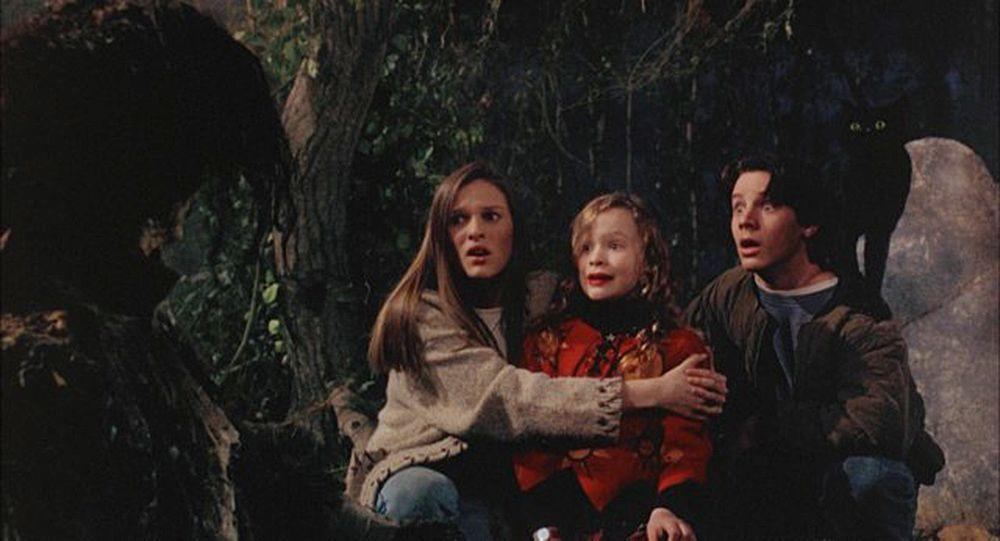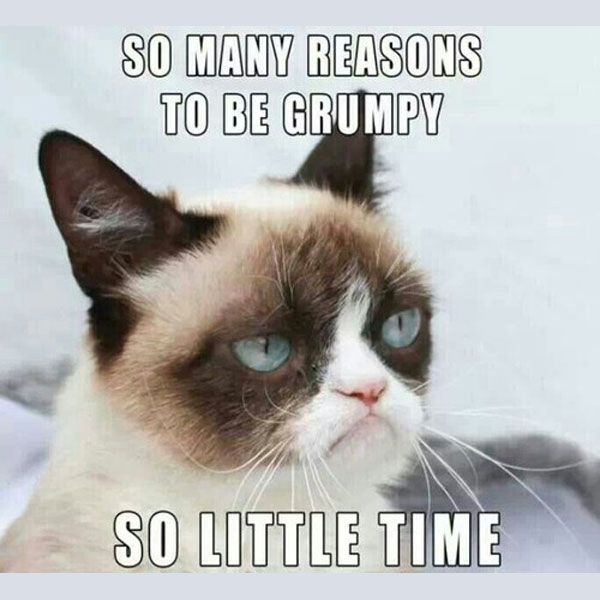
Thackery Binx is one of the central figures of Hocus Pocus, and in doing this the film considers the status of domesticated animals within society and cinema. Hocus Pocus acknowledges cats’ role as a domestic sphere defenders. Binx is specifically transformed into a cat because of the meanings we associate with them in our society, and these traits are thus exhibited within the film. For instance, the personality of Binx, and the film’s portrayal of him, should present him to be an unpleasant character. For example, throughout the film, he is consistently pessimistic and irritable towards Max Dennison. However, by designing him as a cat, the film encourages the expectation of cats, such as stubborn and loyal, to align with the character. In doing this, his previously adverse features become more comedic as obstinancy is an expectation we have of cats. Ortega is thus creating a character that allows the audience to appreciate the role of cats within our lives by demonstrating the joy they bring to our lives, and thus the guardianship they provide of the domestic world.
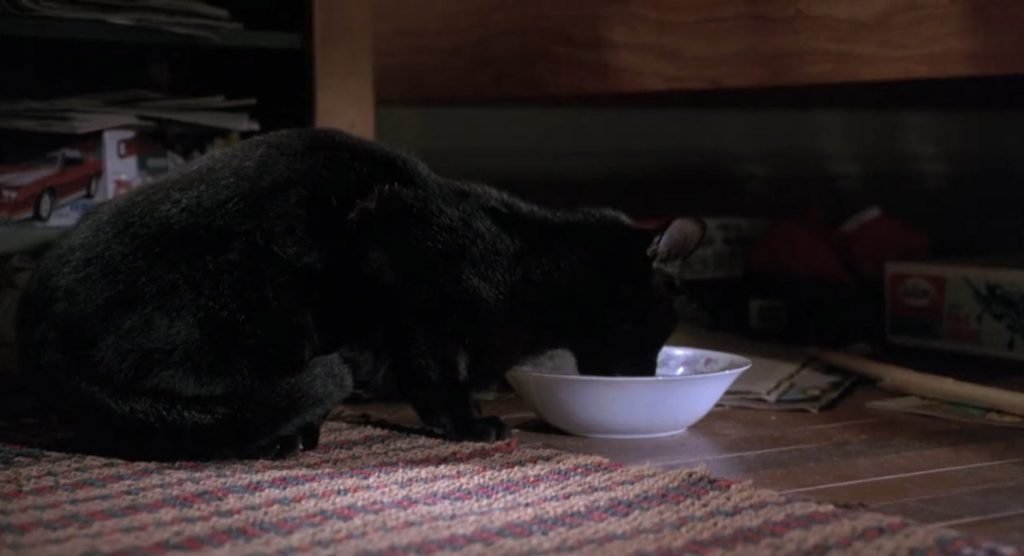
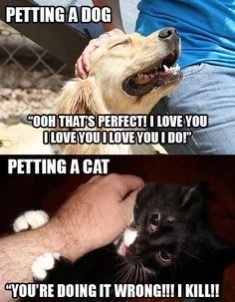
The film regularly discusses the existence of cats in an unfavourable light, such as in a scene depicting Binx and Dani Dennison. Binx drinks out of a cat bowl on the floor accompanied by loud slurping sound effects. The audience watches from a low angle on the floor beside him. This accentuates Binx’s feline qualities such as his stature and eating on the floor rather than at a table like the human he was transformed from by the witches. Resultantly, this highlighting of his feline characteristics adds comedic effect to the scene when he goes on to complain that Dani is “going to turn me into one of those fat, useless, contented house cats”, as it seems as though it is already too late. The comedic sense that everyone, including the cat himself, disfavour felines is not an infrequent opinion amongst society and online discourse. The film thus plays up this gag to demonstrate that even despite this dislike, cats still provide us with entertainment.
The film, as we have seen, often accentuates the feline qualities he does express. The film goes to great lengths to portray Binx as endearing as evidenced in this scene. By Binx conforming to stereotypes of feline characteristics, we already associate him with our own pets and our love of them. The camera stays close to him at all times in this scene, from close-ups to over-the-shoulder shots, the audience is a consistent part of the scene as if they are a part of the conversation. Then as Binx joins Dani on the bed, the camera again closes in on the two, which when combined with the low lighting invites the audience to accompany them in the comforting hug. However, this is not a typical scene between a girl and her pet because Binx is only a cat physically. He does not need to conform to the typical behaviour of felines, and has even voiced his distaste for it, yet he complies for the benefit of Dani. The transformation into a cat perfectly fits the personality of Binx to the degree that it is easy to forget he was ever human. He is often stubborn but he is also fiercely loyal, which also defines him as such a likeable character we so closely connect with our own pets. In this scene, it becomes evident that Binx is a protector of this domestic world from the witches, as cats are in our own lives. As cats comfort us with their cuteness, they are also creating a safe space within our homes.
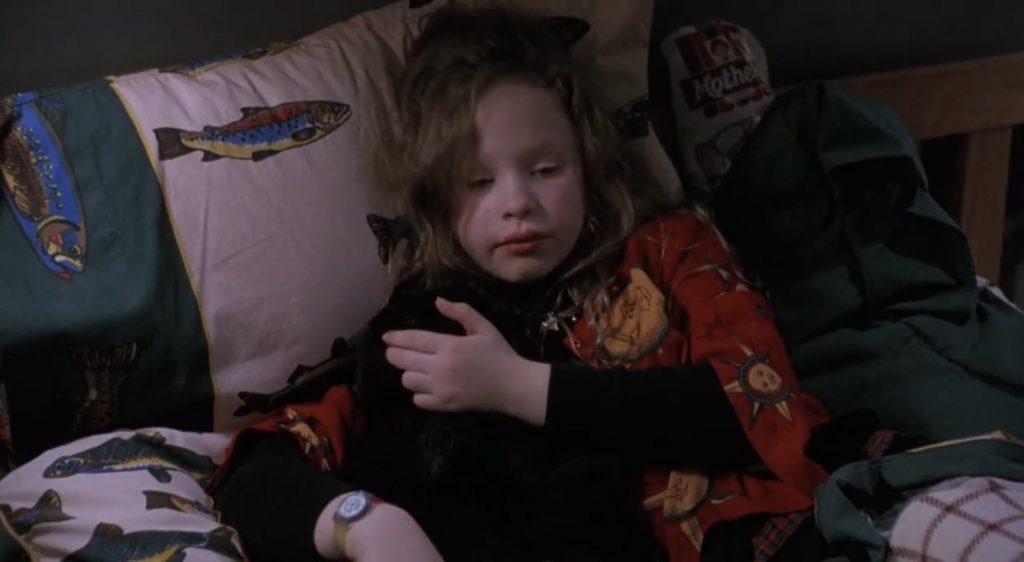
Therefore, the utilisation of anthropomorphism to transform Binx into a cat is associated with the meanings cats hold in our lives. It is evident that humans find much comfort in these domesticated animals. Hocus Pocus demonstrates this by presenting a character that despite having only transformed into a cat, and thus still having the mentality of a human, accentuates these qualities. Through Binx’s comedy and general adoration by the audience, Ortega presents the role that cats provide within our lives as entertainers and protectors. Just as Binx protects the kids physically and mentally from the witches, our cats protect us similarly from our own demons.
